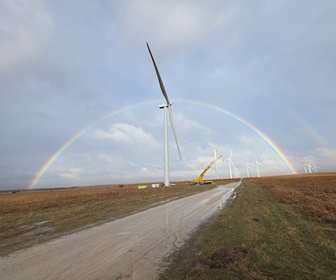 A new GBP 900k joint industry project is set to explore the technical, regulatory and societal issues of using autonomous surface vessels, integrated with existing manned shipping operations, to support offshore wind farm operations and maintenance. The ultimate goal of the 18-month Windfarm Autonomous Ship Project (WASP) is to develop a timeline for the phased introduction of autonomous vessels.
A new GBP 900k joint industry project is set to explore the technical, regulatory and societal issues of using autonomous surface vessels, integrated with existing manned shipping operations, to support offshore wind farm operations and maintenance. The ultimate goal of the 18-month Windfarm Autonomous Ship Project (WASP) is to develop a timeline for the phased introduction of autonomous vessels.The project, which is part funded by Innovate UK and led by ASV Global, in partnership with the Offshore Renewable Energy (ORE) Catapult, SeaRoc Group, Houlder and University of Portsmouth, will set out to verify the benefits and build the case for the use of autonomous vessels.
As part of the project, ASV Global will be further advancing its autonomous control system to tackle the challenges presented by the operation of autonomous vessels in the constrained environment of a windfarm. ORE Catapult will work on the use cases and validation of the cost savings created by the project. SeaRoc Group will be extending its SeaPlanner software to assist with the monitoring and operation of autonomous vehicles and the introduction of cargo planning systems. Whilst the University of Portsmouth will assist with efficient route planning, logistics management and system analytics. Houlder will develop the vessel design and a handling system to enable autonomous cargo transfer.
The project team will work with industry sponsor Ørsted, who will provide use cases from its Hornsea One offshore wind farm, located 120km off the Yorkshire coast. Manned operations will be used as the baseline to compare the time, cost and performance of unmanned ships in different roles, including asset surveillance, security patrols, component spares supply and crew transfer operations.
As part of the project, ASV Global will be further advancing its autonomous control system to tackle the challenges presented by the operation of autonomous vessels in the constrained environment of a windfarm. ORE Catapult will work on the use cases and validation of the cost savings created by the project. SeaRoc Group will be extending its SeaPlanner software to assist with the monitoring and operation of autonomous vehicles and the introduction of cargo planning systems. Whilst the University of Portsmouth will assist with efficient route planning, logistics management and system analytics. Houlder will develop the vessel design and a handling system to enable autonomous cargo transfer.
The project team will work with industry sponsor Ørsted, who will provide use cases from its Hornsea One offshore wind farm, located 120km off the Yorkshire coast. Manned operations will be used as the baseline to compare the time, cost and performance of unmanned ships in different roles, including asset surveillance, security patrols, component spares supply and crew transfer operations.









